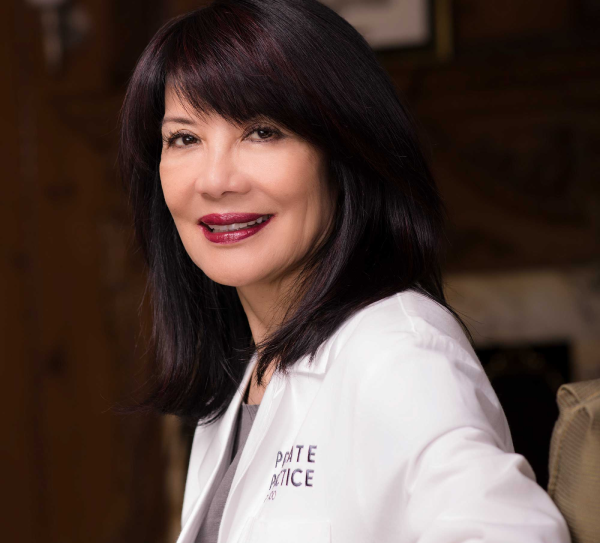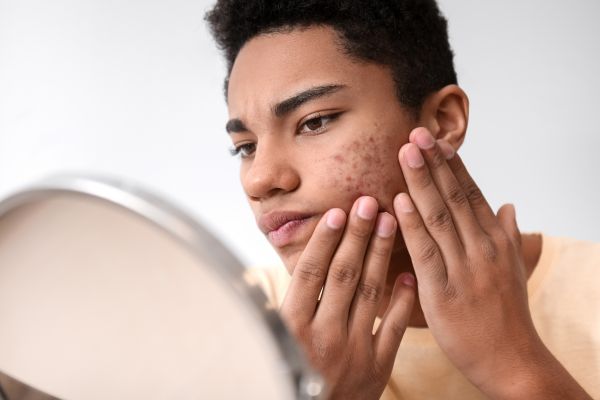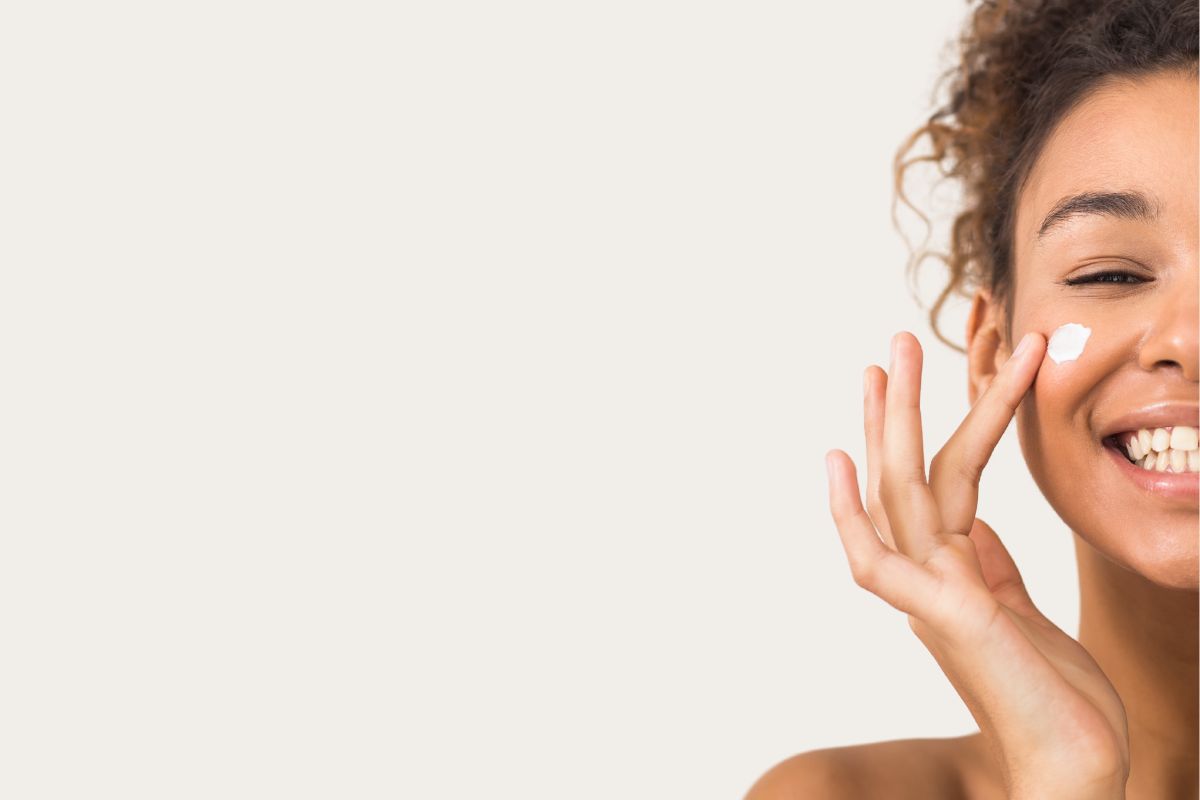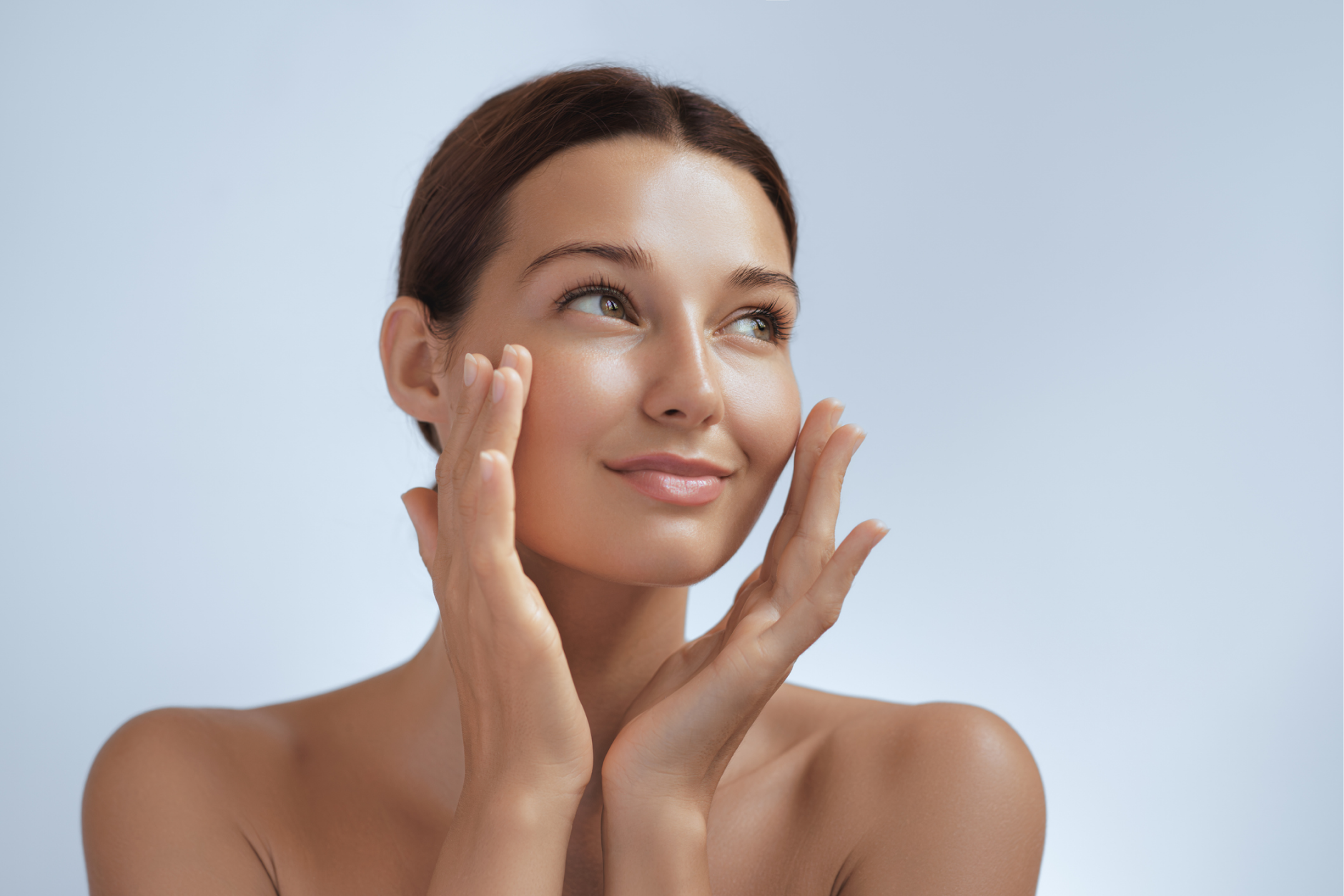Teen acne can be frustrating, unpredictable, and sometimes downright unfair. Breakouts often appear at the worst times. They can appear just before a school dance. They can also appear for important events. Sometimes, they just pop up on regular days when you want to look your best. But here’s the good news: with the right knowledge and teen acne skincare routine, managing your acne is absolutely possible.
Dr. Michele Koo is a board-certified plastic surgeon. She has years of experience in skin health. In this blog, she explains the best ways to treat and prevent acne. Let’s look at what causes breakouts and how to create a good teen acne skincare routine. Finally, we will share the best products for clear and healthy skin.
UNDERSTANDING TEEN ACNE—WHY IT HAPPENS & HOW TO MANAGE IT
Acne is a rite of passage for many teenagers, but that doesn’t make it any less frustrating. Understanding the root causes of teen acne is essential for finding effective treatments. Let's breakdown the science behind teen breakouts and the best ways to manage them.
WHAT CAUSES ACNE IN TEENS?
Teen acne is mostly driven by hormonal changes during puberty. As androgen levels increase, so does oil production, leading to clogged pores and breakouts. If acne runs in your family, you may also be more prone to it. Stress and lifestyle habits—like frequently touching your face, using the wrong skincare products, or not washing your face regularly—can contribute to flare-ups as well.
HOW DOES PUBERTY AFFECT TEENAGE ACNE?
When puberty hits, the skin produces more sebum (oil), which can mix with dead skin cells and bacteria, leading to pimples, blackheads, and inflammation. The result? A rollercoaster of skin changes that can feel hard to control. While acne is common, it can also have an emotional toll, affecting self-esteem and confidence. Understanding why it happens is the first step in managing it effectively.
HOW IS TEENAGE ACNE TREATED?
Acne isn’t one-size-fits-all, so treatment depends on its severity. Mild acne may be controlled with over-the-counter skincare. More persistent cases may require prescription treatments.
For treatment look for products containing ingredients like retinol, benzoyl peroxide, witch hazel, tea tree oil, hyaluronate/hyaluronic acid, azaleic acid or salicylic acid.
Look for these ingredients in products to lessen the acne pigmentation scarring, niacinamide, ceramides, Tetrahexyldecyl Ascorbate (Vitmain C), and retinol.
A consistent skincare routine, paired with lifestyle adjustments like healthy eating, plenty of water hydration, and stress management, can make a huge difference.
Sometimes a low dose birth control or spironolactone (prescription water management) can help with wild hormone fluctuations.

BUILDING THE BEST TEEN ACNE ROUTINE—DR. MICHELE KOO'S ADVICE
A well-structured skincare routine is the foundation of clear skin. But with so many products available, how do you know what works? Dr. Koo shares expert tips on building an effective and simple teen acne-fighting regimen.
A KOO-OVERVIEW OF A TEEN'S DAILY SKINCARE ROUTINE
When it comes to the best skincare for teen acne, less is often more. Overcomplicating your routine or using harsh products can backfire, making breakouts worse. Instead, focus on a simple yet effective approach:
- Cleanse & Moisturize Twice Daily: Keeping the skin clean and hydrated is essential. A very gentle cleanser is your must. Do NOT feel you have to use a stripping exfoliating cleanser. Only use mild daily exfoliating cleansers or actually a gentle cleanser. And yes, you need a moisturizer, a very light weight water based serum, like my Calming Serum for Blemish Finicky Skin but any very light weight serum will work!
- Use Non-Comedogenic Products: Avoid pore-clogging ingredients that can trigger breakouts.
- Spot Treatments for Breakouts: Apply acne-fighting ingredients like retinol, benzoyl peroxide or salicylic acid to problem areas.
- Daily SPF: Protecting your skin from the sun helps prevent acne scars and hyperpigmentation. Use lighter weight non comedogenic SPFs. Unfortunately there is not one best product and you have to systematically go to Target or Walgreen’s to simply test and use from the shelves. Always choose something that feels very light to touch and on your skin.
- Patience is Key: Results won’t happen overnight, but a consistent routine will lead to improvements over time.
WHY CONSISTENCY MATTERS
Clear skin isn’t achieved with quick fixes—it’s all about long-term commitment. Switching products too often or scrubbing your face aggressively can irritate your skin and lead to even more breakouts. Trust the process, and let your skin adjust to your routine before expecting significant changes.
ACNE SKINCARE FOR TEENS - THE ESSENTIALS
The right products can make all the difference in managing teen acne. From gentle cleansers to targeted treatments, choosing the right ingredients ensures healthier, clearer skin. But, don't just grab something off the shelf because it says it's a 'teen acne product'. Here’s what every teen should have in their skincare arsenal.
CLEANSING—THE FOUNDATION OF CLEAR SKIN
A good cleanser is the first step in preventing acne. Harsh soaps can strip the skin, causing it to produce even more oil. Instead, opt for a gentle, pH-balanced face wash for teen acne designed to remove excess oil and dirt without disrupting your skin’s natural barrier. The reason your skin is oily but can feel very dry is you are using too harsh of a cleanser and not moisturing with a water based serum.

MOISTURIZING—LOCKING IN HYDRATION & STRENGTHENING YOUR SKIN BARRIER
Even oily or acne-prone skin needs moisture. The key is choosing a lightweight, oil-free, water based serum that hydrates without clogging pores. Pair this with an antioxidant-rich serum to help protect the skin from environmental stressors.
- Try These: Dr. Koo's Non-Oily Calming Hydration Serum for Finicky Skin and Dr. Koo’s Antioxidant Vitamin Serum

TARGETED ACNE TREATMENTS—WHAT REALLY WORKS?
For those pesky breakouts, targeted treatments are essential. Look for these ingredients for teen acne usually have ingredients like benzoyl peroxide, salicylic acid, and retinol. These can help treat current pimples and stop future breakouts.
-
Recommended Recommended: Dr. Koo’s pH Optimum Retinol Level 1 Pads

SPF—THE NON-NEGOTIABLE STEP
Sun exposure can worsen acne scars and cause dark spots. A lightweight, non-comedogenic SPF is essential to protect the skin every day.
BEST ACNE PRODUCTS FOR TEENS—WHAT A PLASTIC SURGEON RECOMMENDS
Not all acne products are created equal. Some contain powerful ingredients that treat breakouts effectively, while others may do more harm than good. Dr. Koo breaks down what to look for—and what to avoid—when selecting skincare products.
INGREDIENTS TO LOOK FOR
Choosing the right products means understanding what works. Look for:
- Niacinamide – Helps reduce redness and inflammation.
- Vitamin C – Brightens skin and supports healing.
- Ceramides – Strengthen the skin’s protective barrier.
INGREDIENTS TO AVOID
Just as important as what you use is what you should avoid. Skip products containing:
- Alcohol-heavy toners – These can overly dry the skin, causing more irritation.
- Sulfates & Parabens – Known irritants that can trigger breakouts.
- Fragrances & Essential Oils – These can be too harsh on sensitive skin.
WHEN TO SEE A PROFESSIONAL—KNOWING THE SIGNS
- Sometimes, home treatments aren’t enough. If acne is severe, painful, or causing scarring, it’s time to seek professional advice. Here's what you can expect when working with a consultant:
- A prescription for antibiotic, retinol, birth control, spironolactone, Accutane
- The appropriate skincare for your type of skin
- PATIENCE for some trial and error

LIFESTYLE FACTORS THAT CAN HELP PREVENT TEEN ACNE
Skincare is only part of the solution—your lifestyle plays a significant role in managing acne, too. Small changes, from diet to hygiene habits, can have a big impact on your skin’s health. Here’s how to take care of your skin from the inside out.
HEALTHY HABITS FOR CLEAR SKIN
- Keep hands off your face – Touching your face spreads bacteria.
- Clean pillowcases regularly – Dirt and oil buildup can contribute to breakouts.
- Manage stress – High stress levels can trigger acne.
- Eat a skin-friendly diet – Limit processed foods and dairy.
- Stay hydrated – Water supports overall skin health.
MANAGING TEEN ACNE AND MENTAL HEALTH
Teen acne isn’t just a physical concern—it can affect self-esteem and mental health. For many teens, breakouts lead to insecurity and social anxiety. Let’s discuss the emotional side of acne and how to build confidence while caring for your skin.
THE EMOTIONAL IMPACT OF ACNE
Acne can take a toll on self-esteem, making teens feel self-conscious. It’s important to remember that acne is common and treatable. Support from family and skincare professionals can make a world of difference.
BUILDING SELF-CONFIDENCE
Encouraging positive self-talk, self-care, and a realistic perspective on skincare can help teens navigate acne with confidence. Seeking emotional support is just as crucial as finding the right skincare products.
COMMON TEEN ACNE MYTHS & MISCONCEPTIONS
Acne is a common skin problem that many people misunderstand. This leads to ineffective treatments and even more stress. Let’s separate fact from fiction with expert insight from Dr. Michele Koo.
DR KOO SEPARATES FACT FROM FICTION
- Acne is not caused by poor hygiene – Over-washing can actually make acne worse by irritating the skin.
- Acne is not just a skin-deep issue – It has hormonal, genetic, and environmental triggers.
- You can treat and manage acne. With the right skincare routine and lifestyle changes, you can achieve clear skin.
- Acne does not mean you are unhealthy or have bad habits. Even people with great skincare routines can get breakouts due to internal factors.
DEBUNKING COMMON MYTHS ABOUT TEEN ACNE
- Eating greasy foods does not cause acne – While diet plays a role, fried foods alone won’t lead to breakouts.
- Stress does not cause acne alone – it can worsen acne, but it is not the sole cause.
- Acne is not just for teenagers – Many adults struggle with acne well into their 30s and beyond.
FINAL THOUGHTS—ACNE IS TEMPORARY, CONFIDENCE IS FOREVER
Managing acne takes time, but the right skincare routine, lifestyle habits, and mindset can make all the difference. Stick with your routine, choose gentle and effective products, and remember—your skin doesn’t define you. Confidence, kindness to yourself, and consistency in care will always win in the long run!




